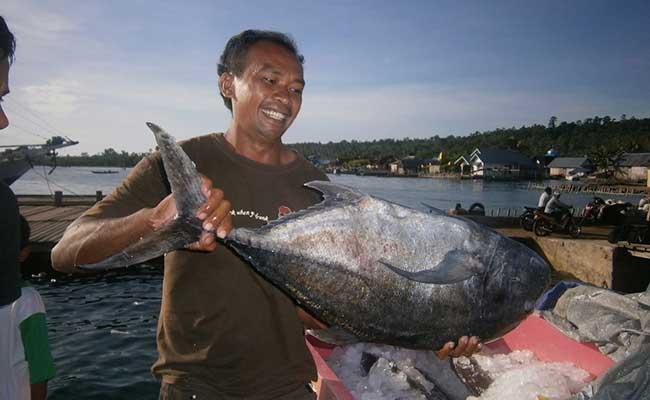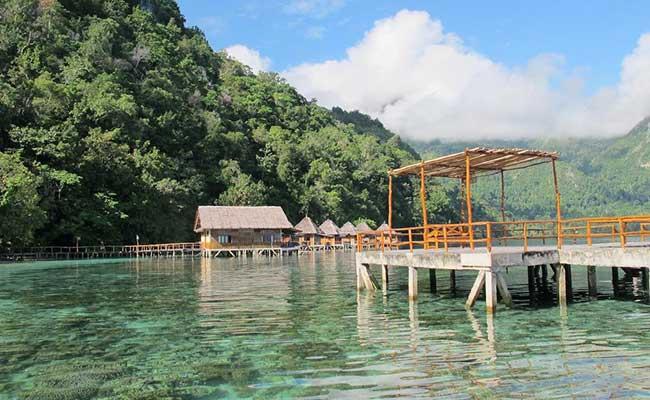The Indonesia Sustainable Ecosystems Advanced Project | Enhancing Marine Biodiversity Conservation and Fisheries Management Efforts
Enhancing marine biodiversity conservation and fisheries management efforts while strengthening leadership capacity
The Indonesia Sustainable Ecosystems Advanced Project
The Indonesia Sustainable Ecosystems Advanced (SEA) Project supports the Government of Indonesia to improve the management of fisheries and marine resources and to conserve biological diversity. Tetra Tech is implementing the SEA Project, which is funded by the U.S. Agency for International Development (USAID). The SEA project is targeted at national, provincial, and local levels, with a focus on the provinces of West Papua, Maluku, and North Maluku that lie within Indonesia’s Fishery Management Area (FMA) 715.
Indonesia is at the center of the world’s coastal and marine biodiversity, with more than 600 known coral species and 2,228 (37 percent) of the world’s 6,000 coral reef fish species. Therefore, the sustainable use and management of coastal and marine biodiversity is important not only for the nation but also within a regional and international context.
Tetra Tech’s SEA project team uses an ecosystem-based approach to reform fisheries management, engaging key stakeholders to enhance conservation and the sustainable use of marine resources, as well as enhance food and nutrition security. The project designates and promotes marine protected areas to reduce declines in critical fishing stocks. By leveraging private sector partners, Tetra Tech is building networks to increase market demand for sustainable fishing and conservation.
Through an integrated approach to biodiversity conservation and fisheries management, Tetra Tech is seeking ways to incentivize stakeholders to align their behavior with sustainable resource use. The team works to strengthen the capacities of the Ministry of Marine Affairs and Fisheries (MMAF) and local governments to promote conservation and sustainable fishing. SEA helps leaders in the fisheries sector develop plans and implement activities that protect the region’s critical biodiversity. The team works closely with the MMAF, local government, and community champions to develop audience-specific messaging for all SEA stakeholders.
Gender considerations, with a focus on gender equality and female empowerment, are integrated into all components of the SEA Project to ensure benefits are shared across the communities in which the team works. The SEA team trains women and helps provide a better platform for them to be productive participants of their local value chains, in addition to educating men on the benefits of inclusion.
Through the SEA Project, Tetra Tech conducted an extensive survey on marine conservation and sustainable fisheries by holding participatory meetings to identify and prioritize biodiversity hotspots (habitats and species). The survey also aims to gauge local communities’ knowledge and perceptions about marine conservation. The overall goal of the survey is to collect findings to help improve the design of management structures for marine resources to strengthen participatory co-management and transparency.
SEA’s efforts will continue to focus on conservation of critical habitat and species within the 11 Fisheries Management Zones in Indonesia, which cover the entire archipelago. SEA’s activities will seek to improve the sustainability and resilience of marine resources, habitats, marine protected areas, and human coastal communities.



